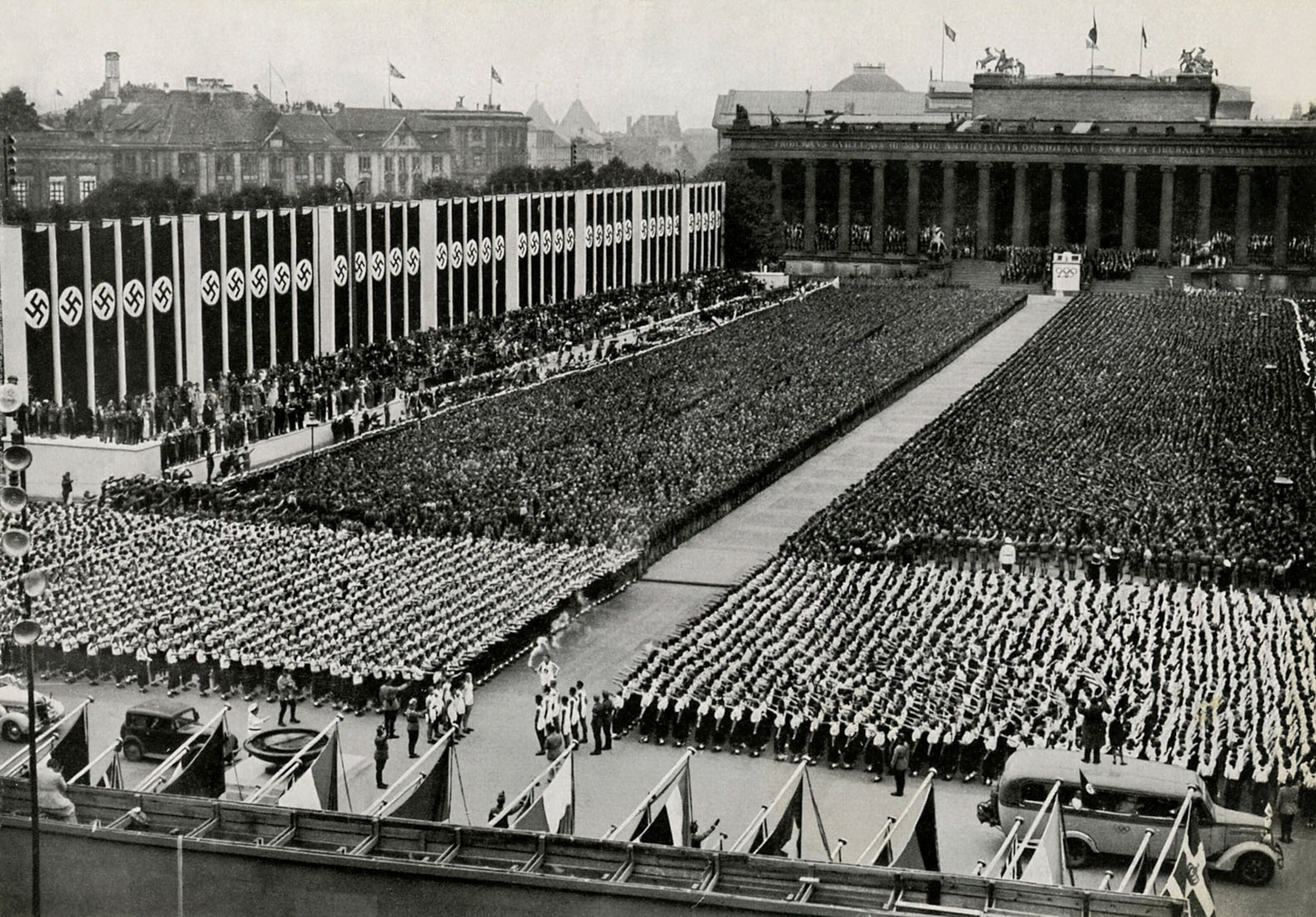
The Olympics' turbulent history in times of global crisis
As Tokyo postpones the 2020 Summer Games, some point to a 40-year curse to explain the Olympics' history of delays, boycotts, and turmoil.
Tokyo officials have announced that the 2020 Summer Olympics will be postponed by a year in the face of mounting fears over the coronavirus pandemic.
This is the first major disruption the modern Olympic Games have faced since 1944—and only world wars have ever brought the Olympic Games to such a standstill. But the global event is no stranger to turmoil: It has been subject to boycotts, bans, and even volcanic eruptions throughout its history.
Mount Vesuvius forces a relocation
In 1904, Rome won out over cities like Berlin and Turin to host the 1908 Olympic Games. But two years into preparations for the event, disaster struck: Mount Vesuvius erupted, causing serious destruction in the cities near the base of the volcano and paralyzing the city of Naples. Overwhelmed by the cost of recovery, Italy had to give up its Olympic bid.
But even that volcanic eruption couldn’t cancel the Olympics. International Olympic Committee officials instead turned to London to host—giving the city just 10 months to prepare. The British Olympics Association made the most of that time and even managed to build a brand new stadium, which was the first ever to be built especially for the Games.
Europe goes to war
When World War I broke out in July 1914, Berlin was already well into its preparations to host the 1916 Olympics. It, too, built a new stadium, one that had been inaugurated with a parade before Kaiser Wilhelm II, the German emperor and king of Prussia.
With most of Europe at war, officials considered moving the 1916 Olympics to more neutral territory like the United States, which hadn’t yet entered the war. But this time around the question wasn’t just where to host the Games, but whether there would be enough men to compete in them. In December 1914 the New York Times reported that the Games would “in all probability have to be abandoned as a result of the war.” Ultimately, the 1916 Games were canceled.
In 1920, the Olympic Games resumed in Antwerp, Belgium. Doves were released at the opening ceremony as a symbol of peace, and competitors took the Olympic oath for the first time. For the next two decades, the Games carried on as usual and even expanded with the launch of the first Winter Olympics in 1924.
Nazi boycotts and World War II
The International Olympic Committee awarded Berlin hosting honors for the 1936 Olympics, symbolizing its return to the international community after its defeat in World War I. But the rise of Adolf Hitler and the barring of Jewish athletes from competing outraged many. Movements to boycott the 1936 Olympics spread in the U.S., Great Britain, France, Sweden, and beyond.

Though the Games still went on that year—marred by racist propaganda—they would be the last for more than a decade owing to the outbreak of World War II.
In 1940 Japan was slated to host both the summer Games, in Tokyo, and the winter Games in Sapporo. But after war with China erupted in 1937—and as other nations threatened to boycott in response—Japan forfeited its right to host, citing the rising costs of war, as well as floods in Tokyo, Yokohama, and Kobe.
Olympics officials once again deliberated moving the events to Finland and Germany, ultimately reassigning them to Helsinki. But by 1940, the Soviet Union had invaded Finland and the Games were off. War engulfed the world until 1945, forcing officials to cancel the 1944 Summer Games in London and Winter Games in Cortina d’Ampezzo in northern Italy.
Boycotts
Throughout its history, nations have occasionally boycotted—or been barred from participating—in the Olympic Games. In 1964, South Africa was banned from the Olympics due to its racist apartheid regime. In 1976, Denver backed out of hosting the Olympics after Colorado voters signaled they didn’t want to pay for the undertaking.

Most famously in recent history, though, the United States led a boycott of the 1980 Moscow Olympics to protest the Soviet Union’s invasion of Afghanistan. Sixty-six countries joined the boycott, including Japan, Canada, and West Germany. Four years later, the Soviet Union turned the tables and led a 14-country boycott of the 1984 Olympics held in Los Angeles in retaliation for the 1980 boycott.
Tokyo and the 40-year curse
But while the Olympics may have survived decades of boycotts and bans, some believe that they’re cursed—particularly whenever Japan is set to host. In early March 2020, Japan’s finance minister Taro Aso bemoaned the looming prospect of canceling the Olympics due to the coronavirus pandemic.
"It's a problem that's happened every 40 years—it's the cursed Olympics—and that's a fact," he said, pointing to the canceled Olympics of 1940 and the U.S.-led boycott of 1980.
If there is an Olympics curse, Japan would know. While Tokyo did ultimately host the 1964 Olympics, that year was marred, too: North Korea, China, and Indonesia boycotted the event after the IOC refused to allow some of their athletes to participate.It was also the first year that South Africa was banned from the Olympics over apartheid.
In spite of its star-crossed history, Japan—which has spent more than $10 billion preparing for this year’s Olympics—signaled its intent to reschedule the event for sometime in 2021. Perhaps by then the 40-year curse will no longer apply.